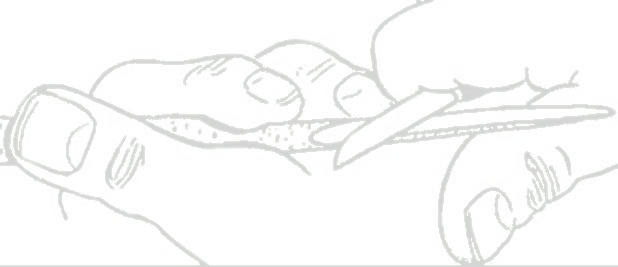"Fuzzies" those messy slivers and little chips of wood that remain on a wood piece after whittling! Some times they remain on the surface, but mostly they reside in the bottom of grooves and/or when two whittled surfaces meet. Questions abound, as to how to get rid of them. Some say scrub the piece with a stiff brush, hot water and liquid soap. Others say use a dental pick to clean them out. Or you can sand them out with a flap sander. However, the answer that is most heard is, "learn NOT to get them in the first place".
I recently was asked this question from a newer whittler. I observed his whittling and noticed his knife. This fellows knife had an "up-sweep" blade referred by most as a scimitar shape. Like this:
While this blade is a wonderful shape, it may present a problem for the newer whittler, that can result in some "fuzzies". While the blade shape facilitates a slicing motion to ones cuts it can require an additional motion when removing a corner chip. This may be particularly evident when removing a chip to form an eye area.
The blade shape being curved may require you to "rock" the knife one way or the other to bring the cutting surface of the blade into contact with the initial knife cuts, in order to remove a clean chip without any left over wood at the bottom of the cuts. This may also be true when using a scimitar shaped blade to make a stop cut. It's kinda like fitting a round peg into a square hole. There'll be some left over wood at the corners.
After some whittling experience the scimitar knife technique will become second nature, but I recommend that a new whittler may find more success with a straight blade.



No comments:
Post a Comment